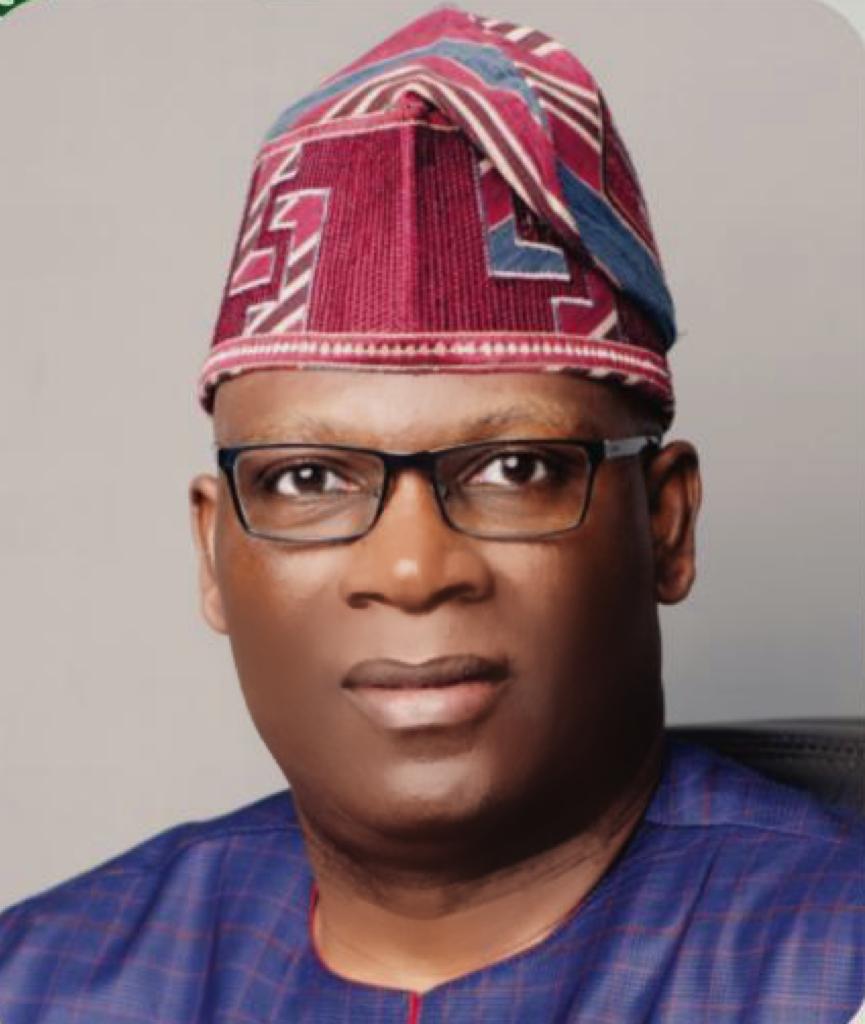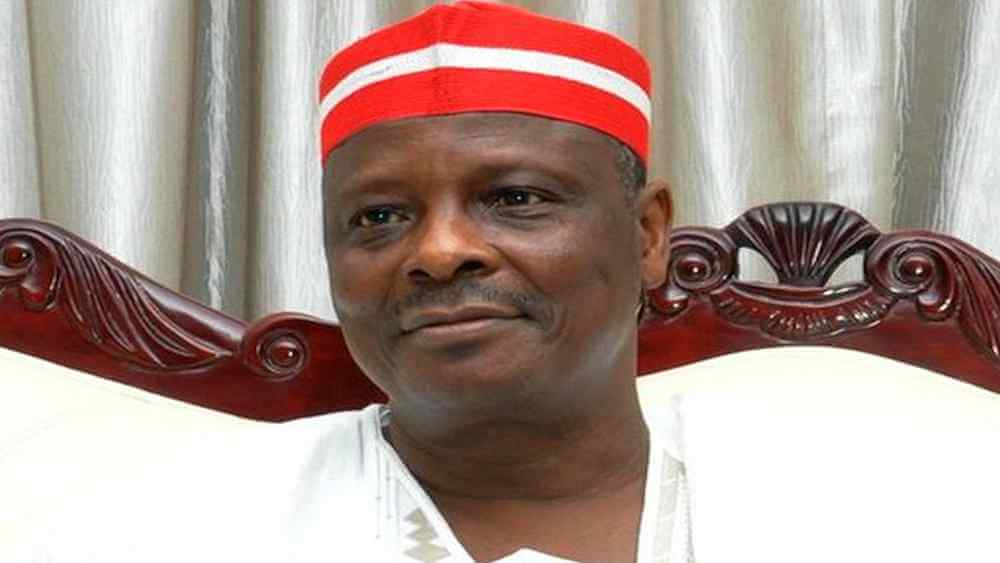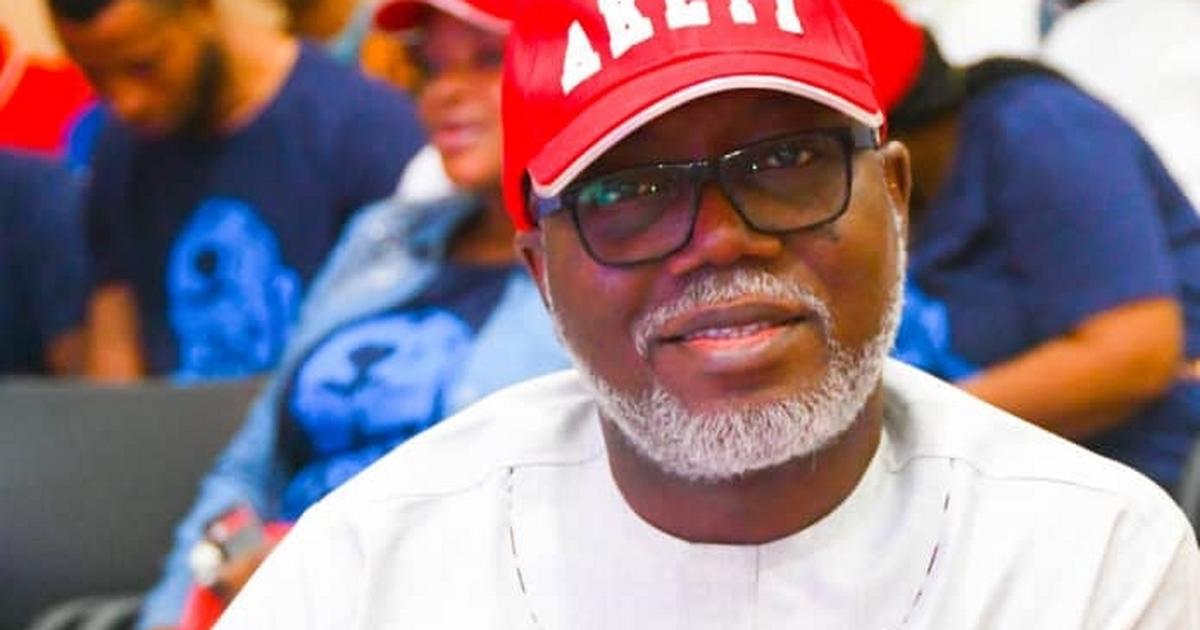Opinions
2023: Why Seye Oladejo Deserves To Represent Mushin II At House of Reps By Sesan Oluwaseun
There have been records of great men and women who have distinguished themselves in public office, especially in Nigeria. But one man that has distinguished himself in public service and political party organisation is Hon. Oluwaseye Olaniran Oladejo, popularly known as Seye Oladejo.

John F. Kennedy in his inaugural address on January 20, 1961, said “Ask not what your country can do for you – ask what you can do for your country.” Kennedy’s inaugural address has inspired generations to see the importance of public service for the development of their community, state and nation.
There have been records of great men and women who have distinguished themselves in public office, especially in Nigeria. But one man that has distinguished himself in public service and political party organisation is Hon. Oluwaseye Olaniran Oladejo, popularly known as Seye Oladejo.
Oladejo born over fifty years ago has contributed immensely to party politics and governance, not only in Mushin Local Government Area but Lagos State at large. He has been an active participant in local and state politics for almost three decades serving in different positions.
Oladejo displayed leadership traits at an early age serving meritoriously as the Library Prefect in his secondary school, Archbishop Aggey Memorial Secondary School, Ilasamaja, Mushin. Young Oladejo was also an active participant during his undergraduate days in the Great Ife – the University of Ife now Obafemi Awolowo University (OAU). He served as the President of his departmental association, IFEVARSITY Literary and English Studies Society. He contested and won an election into the office of the Secretary-General of the University of Ife Students’ Union (1985/86) at 19 years of age.
As the Secretary-General, he was the engine room of the Students’ Union Government. He took care of the general administration and coordinated activities geared towards the rights and welfare of students and the pro-democracy programmes in the heydays of the military misadventure into governance. This, no doubt, came with its sacrifices with incessant harassment by state agents and at times outright incarceration.
His involvement in the democratic struggle prepared him for the bigger challenge of partisan politics with its unpredictability and uncertainties.
After graduating from the University of Ife, he had his one-year National Youth Service Corps (NYSC) scheme in Yola, the then Gongola State. He won the State Award for Outstanding Service.
As a young man with passion who is ready to contribute to the society through qualitative service delivery, Oladejo’s career took him to the Directorate of Mass Mobilization (MAMSER), Daily Times of Nigeria and Goldlink Media. It was during this period that he cut his teeth in media practice and public engagement.
In his quest to serve and render quality service to his community, Oladejo pitched his tent with the progressives during the aborted Third Republic, serving in different capacities on the platform of the Alliance for Democracy (AD). He was at different times the Ward Secretary for AD in Ward H1 and later Local Government Publicity Secretary for AD, all in Mushin Local Government Area. He also contested and won election as Executive Chairman of Mushin Local Government Area in 2004.
His tenure as the Chairman of Mushin Local Government was not deterred by the insensitive and malicious seizure of monthly allocation of local governments in Lagos State by then President Olusegun Obasanjo government. Oladejo as a manager of human and capital resources did excellent work while in office. He constructed roads and drainages with available resources. He also impacted the education sector with the rehabilitation of primary schools, provision of desks, benches and books for the pupils. Primary Health Centers in the local government were re-equipped and rehabilitated.
The Oladejo administration also established new health centers at Ogungbaye and Ijesha road. He also embarked on social intervention programmes by supporting the aged, widows and other vulnerable people. However, a major and impactful highlight of the administration was the provision of 165 boreholes across the local government.
Some of these projects are still in use 15 years after.
Having distinguished himself at the local government level, Oladejo like a golden fish that cannot be hidden was promoted to the state level after completing his tenure as Chairman of Mushin Local Government Area. He worked with two governors for eight years. He was the Special Adviser for Commerce and Industry in the cabinet of Governor Babatunde Raji Fashola between 2011 and 2015 and later also served as Commissioner for Special Duties and Inter-governmental Relations during Governor Akinwunmi Ambode’s administration from 2015 to 2019.
The highlight of his service in the state cabinet during his stewardship in the Fashola administration included the reinvigoration of the informal sector to enhance productivity through the re-skilling of master artisans; exposing them to modern technologies and providing the needed tools to boost the sector. His ministry also supervised the operations of the Lekki Free Trade Zone, which led to among others, the establishment of the Dangote Refinery which is nearing completion. The ministry also facilitated the establishment of the Industrial Park where the Imota Rice Mill is located, the Lekki Airport and the Badagry Dry Sea Port. The Lagos Consumer Protection Agency was also under his direct supervision before it became a full-fledged agency.
As the Commissioner for Special Duties and Inter-governmental Relations, Oladejo managed emergency services in Lagos State. The Lagos State Emergency Management Agency was rebranded during his tenure with the state of the art equipment, professional personnel and decentralised for efficient service delivery. The re-organisation led to the construction of LASEMA RESCUE centers at Epe, Lekki and Cappa. It also led to the synergy among the various government agencies – fire service, Police and ambulance service, among others in rescue operations in the state. The Emergency free toll numbers also became more efficient. The Lagos State Neighborhood Corps was also rebranded for efficiency, re-trained and re-equipped to meet the challenge of modern times.
He also supervised the Nigerian Legion, Para-military bodies like the National Youth Service Corps (NYSC), the Nigerian Civil Defence Corps and the Development Agenda for Western Nigeria (DAWN).
Based on his experience in public service and media relations, the Lagos State chapter of the All Progressives Congress (APC) fished out Oladejo in a moment of need and appointed him Publicity Secretary in 2019. He has been the spokesman of the ruling party in the last two years. He gladly accepted this as a call to service at another level. It was no doubt an opportunity to give back to the party.
Within a short period of Oladejo’s assumption of office as the spokesman of Lagos APC, the information machinery of the party became invigorated as a result of his years of experience in the media, party politics and government. He was able to successfully leverage on this to respond effectively and professionally to burning issues in politics and governance. The opposition was unable to overwhelm the APC as the ruling party with needless criticism and propaganda. It is of note that the Publicity office at the Lagos APC’s secretariat on Acme Road, Ikeja, has remained accessible, informative and efficient in delivering in its mandate.
For almost three decades, Hon. Seye Oladejo has proved beyond reasonable doubt that he is someone to be trusted with public office. He has shown accountability and transparency in service at local and state levels. He has also served his party passionately at local and state levels. Seye Oladejo is an amiable and experienced grassroots politician whose consistency, commitment and passion to the progressive course remain unrivaled.
2023: Why I Am Supporting Tinubu – Kanu Nwankwo
He is known to be a good communicator and networker, whose peculiar talents will come in handy in the hallowed chambers of the House of Representatives. This is one of the reasons why Seye Oladejo has been receiving support and clarion calls from different quarters to contest for Mushin II Federal Constituency seat in the House of Representatives based on popular demand for qualitative representation in the lower chamber of the National Assembly. And as a man who is passionate about public interest above personal interest, Seye Oladejo has decided to yield to the clarion call of his people to serve to avail them of his years of experience serving across various strata in the party and government.
His main promise to the people of Mushin II Federal Constituency if given the opportunity to represent them in the Green Chamber is to provide robust, guarantee qualitative, discerning, visible and result-oriented representation for his constituency. Oladejo will also leverage on the experience of best hands in Mushin II Federal Constituency to provide the desired representation in every sense of the word to his constituents.
His selling point remains several years of consistency in the progressive camp, reliability to efficiently and passionately to deliver on assignments and principled stand on the side of the common man at all times.
As a democrat and firm believer in the rule of law, Oladejo if given the opportunity to represent Mushin II Federal Constituency at the National Assembly, Seye Oladejo will collaborate with other colleagues in the House of Representatives to review some laws that have remained a clog in Nigeria’s spirit of true federalism to engender progress, unity and fair-play. He is also expected to legislate laws in conjunction with the constituents that will make life more meaningful and abundant for the citizenry. Oladejo having proved his worth in the past as a committed public officer, is going to be a visible, listening and active legislator in the Green Chamber. He will do this and many other great things to fulfill his part of the social contract with the people and collaborate with other arms of government to bring unquantifiable benefits to his constituency.
*Sesan Oluwaseun writes from Lagos_





